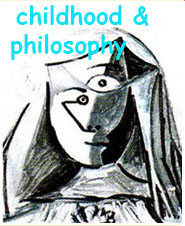philosophical communities of inquiry: the search for and finding of meaning as the basis for developing a sense of responsibility
DOI:
https://doi.org/10.12957/childphilo.2017.26650Keywords:
Philosophy with Children, philosophical community of inquiry, meaning, responsibilityAbstract
The attempt to define meaning arouses numerous questions, such as whether life can be meaningful without actions devoted to a central purpose or whether the latter guarantee a meaningful life. Communities of inquiry are relevant in this context because they create relationships within and between people and the environment. The more they address relations—social, cognitive, emotional, etc.— that tie-in with the children’s world even if not in a concrete fashion, the more they enable young people to search for and find meaning. Examining the way in which philosophical communities of inquiry serve as a dialogical space that enables a search for meaning on the personal and collective plane, this article seeks to expand the discussion of how/whether finding meaning on a private or communal level can promote recognition of the existential uniqueness of each individual and the development of a sense of responsibility for him or her. Grounded in the writings of Matthew Lipman, it links his ideas about finding meaning in philosophical communities of inquiry with those of Jean-Paul Sartre, Viktor Frankl, and Emmanuel Levinas, in particular with regard to the association between meaning and responsibility.




